News

September 2024 newsletter - embracing productive months ahead
We just published our post-summer newsletter edition. Wondering what’s in it for you? Here are a few highlights you might…
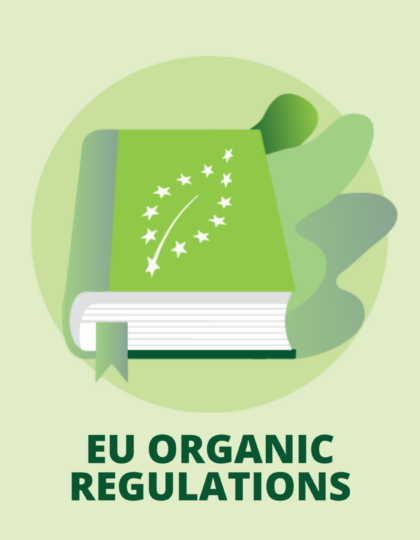
17/09/2024
Organic regulations
Regulation updates: De-alcoholised wine, use organic logo, certificates, compliance & aquaculture
Following the summer break, there are a number of updates on the EU Organic Regulation. From new legal initiatives to…

20/08/2024
Organic regulations
New project will benefit organic operators & contribute to fairer EU Organic Regulation
In June 2024, we kicked off an exciting two-year project that will produce important information for most organic operators! Our…

The EU has continent-wide Nature Restoration Law
Today, the Nature Restoration Law entered into force. The law’s objective is the long-term recovery of nature in the EU’s…

EU Organic Regulation updates: FAQ on organic rules & second list of compliant control bodies
The Commission has updated its Frequently asked questions on organic rules with new topics. It now also clarifies questions on:…

08/07/2024
Organic regulations
Pesticide residue management in organic products
Our food supply includes conventional agricultural systems using synthetic pesticides and other agrochemical products. As our agricultural systems are open…

CDG meeting on organic farming: Agroforestry, plant protection & compliance
Organic stakeholders exchanged with the Commission on synergies between agroforestry and organic, plant protection products and the regulatory switch from…

01/07/2024
Organic regulations
First list of control bodies recognised for compliance published
The first list of control bodies (CBs) recognised for compliance regarding imports from third countries was published in the EU’s…

Read our June newsletter! Here's what you can expect.
We just published our latest newsletter, the last one before the European elections and the summer break. Wondering what’s in…

30/05/2024
Organic regulations
Civil dialogue group about plant protection products & imports
On 24 May, the European Commission held a Civil Dialogue Group (CDG) on organic farming. While the many stakeholder present…

Nature restoration in jeopardy – Member States’ Environment Ministers endanger another EU law
After reaching a trilogue agreement on the Nature Restoration Law last November, adoption of a piece of European Union legislation…

Organics Europe's stance on Member State's efforts to delay anti-deforestation law (EUDR)
Some EU Member States, spearheaded by Austria and endorsed by Finland, Poland, Slovakia, Slovenia, and Sweden, are trying to weaken…
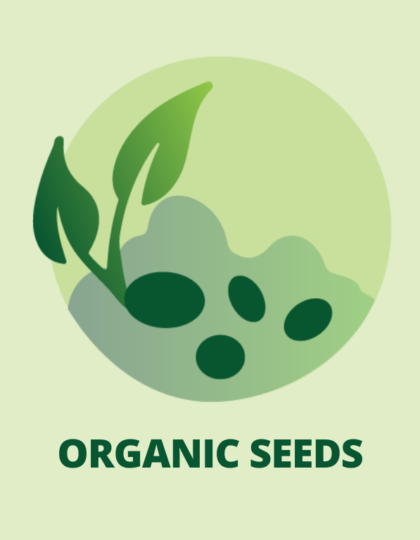
Proposal integrated Plant Reproductive Material Regulation improves after Parliament’s inputs
The EU is revising legislation on plant reproductive material, such as seeds, cuttings, trees, roots, tubers, and clones. Currently, rules…

14/03/2024
Organic regulations
Insights in international trade for EU and third country operators
On Monday 11 March, the European Organic Certifiers Council (EOCC) and IFOAM Organics Europe united experts providing insights into two…
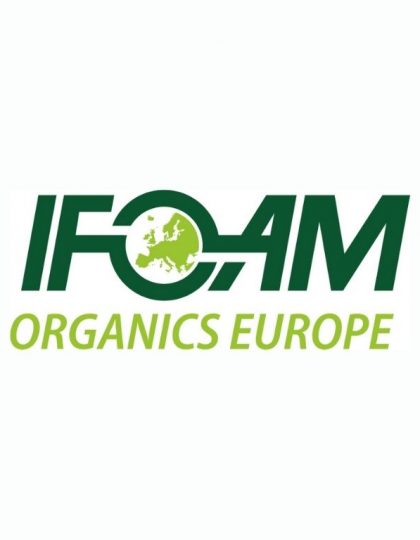
02/02/2024
Organic regulations
Statement of support for Spanish organic producers in their denunciation of a French politician's statement seeking to pit organic farmers from different countries against one another
IFOAM Organics Europe fully supports Spanish organic producers in their denounciation of a French politician’s statement seeking to pit organic…
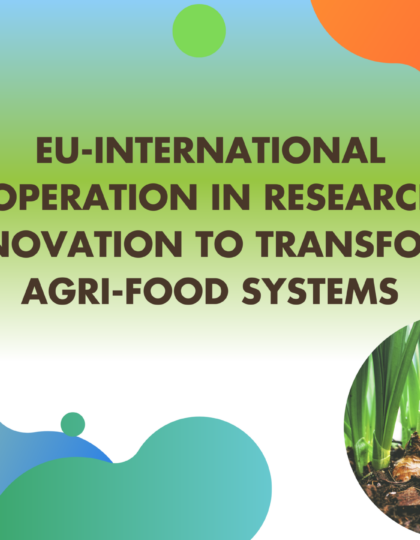
Fostering EU-international cooperation in research & innovation to transform agri-food systems
Right before the EU’s annual Agricultural Outlook conference, TP Organics held its event EU-international cooperation in research & innovation to…

07/12/2023
Organic regulations
Continuation organic equivalency confirmed by UK and the EU & new regulations interpretation published
The UK-EU Trade and Cooperation Agreement that entered into force on 1 May 2021 contains provisions on the necessary reassessment…
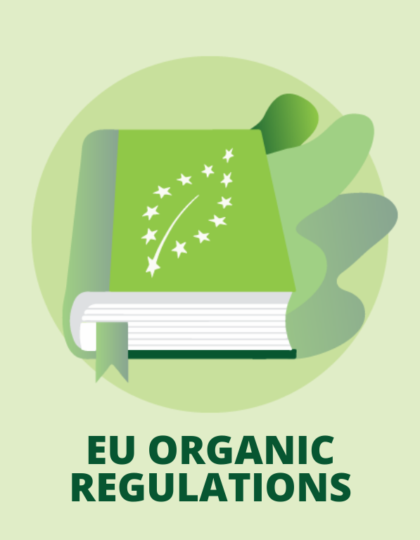
19/09/2023
Organic regulations
Regulatory update after Summer
During the past months, the Commission published updates related to the EU Organic Regulation. In this article, we summarise them.…
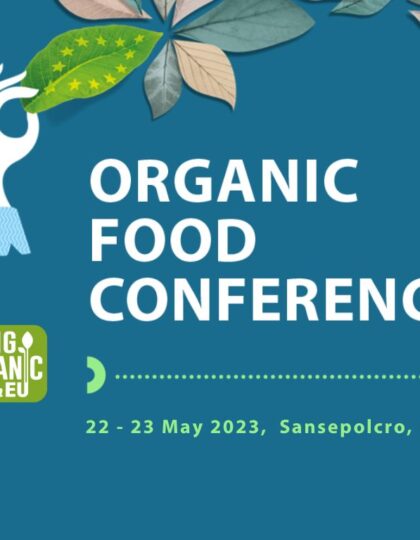
A recap of the Organic Food Conference by BEING Organic in EU
IFOAM Organics Europe was happy to continue promoting the BEING ORGANIC in EU project objectives through the organisation of the…

Exploring the future of organic agriculture: Highlights from day 1 of the Organic Food Conference
The Organic Food Conference took place on 22-23 May at Aboca’s premises in Sansepolcro, Tuscany (IT), and its first day…

22/05/2023
Organic regulations
New position paper on the management of pesticide residues in organic products
We are glad to announce that IFOAM Organics Europe releases today a new position paper on the Management of Pesticide…

Attend the Organic Food Conference in Tuscany, Italy
Would you like to enjoy great Italian organic food while discussing organic? Don’t miss out on our Organic Food Conference Events,…

Agreement on new deforestation law
EU consumption is responsible for around 10% of global deforestation. In the beginning of December, the Council and European Parliament…

10/11/2022
Textiles
NGOs demand adequate methodologies in upcoming legal proposal on green claims– also for apparel & footwear
The European Commission’s is working on an upcoming legislative proposal to help justify (‘substantiate’) green claims and prevent greenwashing. However,…

28/10/2022
Organic regulations
Changes in regulation on recognition of control authorities & bodies for the purpose of import of organic products into the EU
While the EU Organic Regulation 2018/848 has been in force since the start of the year, implementing regulation that specify…
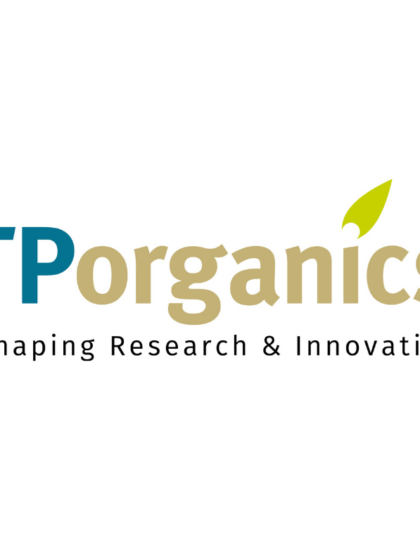
Farmers at the centre of research, innovation & knowledge exchange in TP Organics new study
Organic living labs and lighthouse farms in Europe is a brand new study by TP Organics, the European technology platform…

Preview of events
This year’s edition of the Organic Innovation Days, the only EU event on organic and agroecological research and innovation, will…
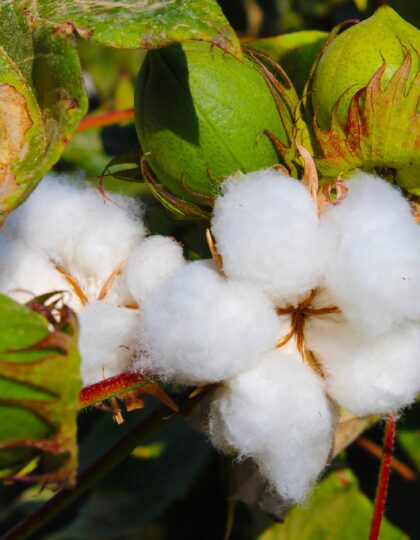
25/08/2022
Textiles
New position paper on organic textiles in a context of strong political momentum
IFOAM Organics Europe published its revised position paper Organic textiles – Protecting the credibility of the organic label. The publication…

28/06/2022
Organic regulations
IFOAM Organics Europe launches a guideline on the use of Flavourings in Organic Food
One of the new EU Organic Regulation (EU) 2018/848’s novelties is the restriction of the use of natural flavourings in…

24/06/2022
Textiles
The importance of an organic label for textiles
What is the issue with textiles?The organic textile market is rapidly growing and the textile industry may be victim of…

Nature restoration law is published
On 22 June the European Commission published the proposal of a Nature Restoration Law together with the Sustainable Use of…

16/05/2022
Textiles
EU strategy for sustainable and circular textiles: Shortcomings and promises
On 30 March, the European Commission published its strategy for sustainable and circular textiles. This strategy is part of the…

Welcome note March 2022 newsletter
Dear readers, These are troubling times for Europe and the world. On top of climate and biodiversity crises we now…

22/03/2022
Organic regulations
Guidelines to help interpret EU Organic Regulation now online
After a 10-year long process, the new EU Organic Regulation has started to apply on 1 January 2022. The basic…

Expert on recycled fertilisers? Join our Task Force on Recycled Fertilisers
IFOAM Organics Europe’s Board created a Task Force on Recycled Fertilisers. This decision comes in the context of the “Integrated…

Welcome note February 2022 newsletter
Dear Readers, I would like to welcome you back after the winter break and take this opportunity to wish you…

05/01/2022
Organic regulations
New EU Organic Regulation: Guidelines & main changes
After a 10-year long process, the new EU Organic Regulation has started to apply on 1 January 2022. The basic…

05/01/2022
Organic regulations
Update on consolidated version of Regulation (EU) 2018/848
After ten years of activities, the New EU Organic Regulation (EU) 2018/848 has entered into application. As expected, many delegated…

Welcome note December 2021 newsletter
Dear readers, 2021 has been another turbulent year, again with great successes and challenges. Just like last year, I would…

14/12/2021
Organic regulations
EU Organic Regulation guide – Beta version online for members!
As most of you are very much aware of, the new EU Organic Regulation (EU) 2018/848 will be applied in…

10/12/2021
Organic regulations
New Implementing Regulation of the new EU Organic Regulation published
Commission Implementing Regulation (EU) 2021/2119 related to the new EU Organic Regulation has just published, a few weeks before its…
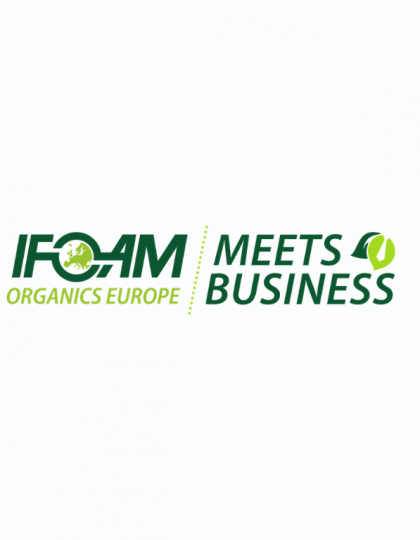
IFOAM Organics Europe Meets Business: Bridging business and EU policies, 7 December, online
On 7 December 2021, players from the whole (organic) supply chain – including processors, traders, retailers, and certifiers – joined the…

08/12/2021
Organic regulations
Organic movement defines integrity of organic supply chain
The new EU Organic Regulation (EU) 2018/848 puts integrity of the organic supply chain at its core principles. However, there…
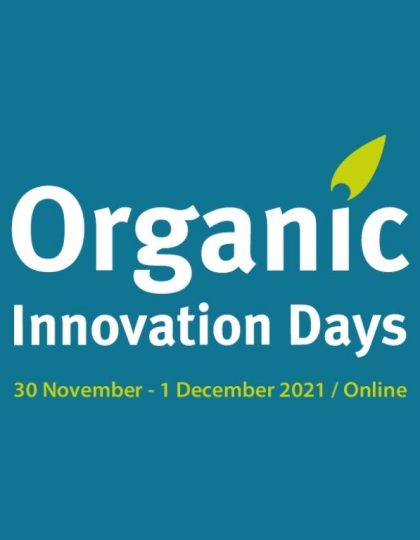
Last chance to register for the event on research and innovation for organic! 30 November-1 December, online
These are the last weeks to register for the Organic Innovation Days 2021, the only EU event on research &…

25/10/2021
Organic regulations
Looking for a guide to run you through the new EU Organic Regulation? We’ve got you covered!
New Organic Regulation (EU) 2018/848 will apply from 1 January 2022. The basic regulation published in June 2018 will be…
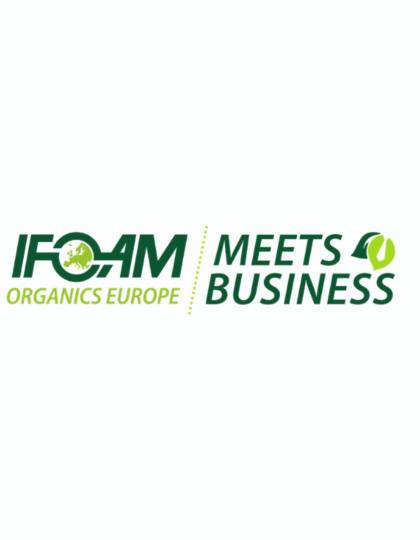
Register now for IFOAM Organics Europe Meets Business on 7 December, online – The event for companies involved & interested in organic
Register now for the upcoming 4th edition of IFOAM Organics Europe Meets Business, taking place virtually on 7 December. This…

29/09/2021
Organic regulations
New EU Organic Regulation applies 1 January 2022: Guide to help operators coming soon
New Organic Regulation (EU) 2018/848 will apply from 1 January 2022. The basic regulation published in June 2018 will be…

17/09/2021
Organic regulations
Feedback to public consultation on the Revision of the EU legislation on Animal Welfare
During the summer, the European Commission launched an Inception impact assessment (roadmap) on the revision of EU legislation on animal…

19/07/2021
Organic regulations
Fill in our survey on pesticide residues in organic for a better and more harmonized future legal framework
The new EU Organic Regulation (EU) 2018/848 will enter into application in a few months, and there will not be…
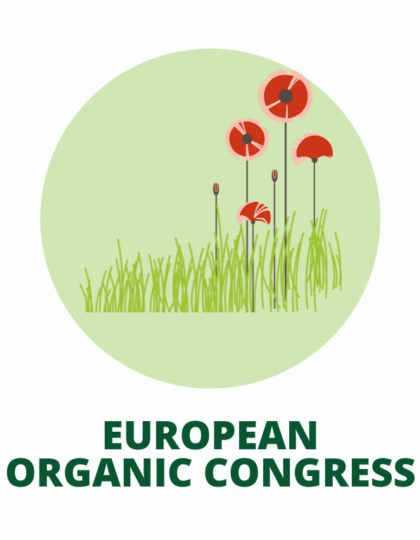
21/06/2021
Biodiversity
CAP
Climate change
EU's agrifood vision
Events
Food policy
Organic regulations
Ten take-aways of the European Organic Congress 2021 - 16-18 June, online, live from Lisbon
Following a successful edition of the hybrid European Organic Congress 2021, we are happy to share the ten key take-aways…

